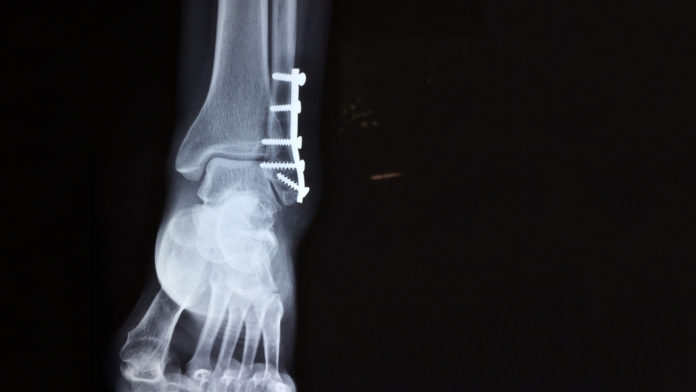When a broken bone can’t heal properly with non-invasive treatment like casting or splinting, it can be surgically set using titanium plates and screws. But these rigid supports can come with complications.
The plates have a thickness, and their size can cause irritation or inflammation as they rub against the skin. Their rigidity also means they can’t adapt to physiologic forces as muscles pull on them.
Not only that, but the bones in the skull in particular are thin and have complex shapes. That means that surgeons must carefully contour the plates to fit each patient, and then drill into delicate and brittle bones to set them in place.
That’s why University of Toronto startup Cohesys aims to replace rigid plates with a biodegradable and flexible tape called BoneTape. The technology is spun off from research in Professor Paul Santerre‘s lab, aiming to take it from bench to bedside.
“This is the only adhesive that sticks to wet bone,” said CEO Michael Floros in a statement. “There is no other tape for bones or anything similar out there.”
Cohesys was inspired by the adhesive proteins made by mussels that allow them to attach to rocks underwater. That property allows BoneTape to adhere quickly to wet bone without drills or screws. Surgeons also don’t need to wait for the adhesive to cure.
Unlike rigid plates, the tape can also easily be shaped by hand by laying it onto the surface of the bone, and in 18 months both the tape and adhesive are bioresorbed. BoneTape is also translucent, so surgeons can visually confirm that it is placed correctly and the bones are properly aligned.
These features make BoneTape much faster and easier to apply than traditional plates and screws, and it only stays in the body for long enough for the bone to heal.
And in one year, Cohesys has already hit $1M USD in investment capital. Their sources include the Venture Cup and RBC Prize for Innovation and Entrepreneurship. This funding will help them bring their product to the market, a target they hope they will reach in the next year and a half.








































